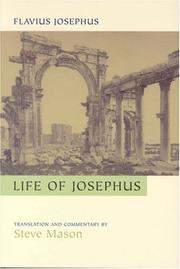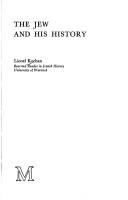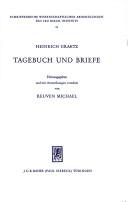| Listing 1 - 10 of 57 | << page >> |
Sort by
|
Book
ISBN: 9789004427921 9789004427914 Year: 2020 Publisher: Leiden;Boston BRILL
Abstract | Keywords | Export | Availability | Bookmark
 Loading...
Loading...Choose an application
- Reference Manager
- EndNote
- RefWorks (Direct export to RefWorks)
This volume includes contributions presented at two conferences, in Mainz and Jerusalem, and presents new discoveries of binding fragments in several European libraries and archives and abroad. It presents newly discovered texts with unknown Jewish writings from the Middle Ages and analyses fragments of well-known texts, such as textual witnesses of Midrashim. One chapter overviews recent discoveries in certain collections, some of them far beyond the geographical horizon of the original project, but certainly all of European origin. Other chapters study palaeographical and codicological issues of manuscript fragments and Ashkenazic inscriptions. A final article refers to the beginnings of scholarly interest in Hebrew binding fragments in Germany and sheds light on the part played by Christian Hebraists in its development.
Book
ISBN: 9789004450141 9789004450134 Year: 2021 Publisher: Leiden;Boston BRILL
Abstract | Keywords | Export | Availability | Bookmark
 Loading...
Loading...Choose an application
- Reference Manager
- EndNote
- RefWorks (Direct export to RefWorks)
In Polish Jews in Israel: Polish-Language Press, Culture, and Politics Elżbieta Kossewska presents a study of the political history of Polish Jews in Israel and their cultural and intellectual achievements, with particular emphasis on the Polish-language press. The book describes Polish immigrants' adaptation in Israeli society after World War II, and shows the shifting of emigrants' attitudes and viewpoints against the backdrop of the Israeli political system. The book contains numerous testimonies, memoirs, and personal documents from Polish journalists and writers that have never been published before. These anecdotes, biographical curiosities, and fascinating details create an evocative and colorful picture of the lives of key figures of post-war Polish life in Israel.

ISBN: 9780391042056 039104205X Year: 2003 Publisher: Leiden: Brill,
Abstract | Keywords | Export | Availability | Bookmark
 Loading...
Loading...Choose an application
- Reference Manager
- EndNote
- RefWorks (Direct export to RefWorks)
Book
ISBN: 9785988460411 Year: 2008 Publisher: Sankt-Peterburg Mir
Abstract | Keywords | Export | Availability | Bookmark
 Loading...
Loading...Choose an application
- Reference Manager
- EndNote
- RefWorks (Direct export to RefWorks)

ISBN: 0333192273 Year: 1977 Publisher: London Macmillan
Abstract | Keywords | Export | Availability | Bookmark
 Loading...
Loading...Choose an application
- Reference Manager
- EndNote
- RefWorks (Direct export to RefWorks)
Jewish historians --- Jews --- History --- Philosophy
Book
ISBN: 2204014095 9782204014090 Year: 1979 Publisher: Paris: Cerf,
Abstract | Keywords | Export | Availability | Bookmark
 Loading...
Loading...Choose an application
- Reference Manager
- EndNote
- RefWorks (Direct export to RefWorks)
Jewish historians --- Judaism --- Chouraqui, André, - 1917-2007
Book
ISBN: 9782226209054 2226209050 Year: 2013 Publisher: Paris: Albin Michel,
Abstract | Keywords | Export | Availability | Bookmark
 Loading...
Loading...Choose an application
- Reference Manager
- EndNote
- RefWorks (Direct export to RefWorks)
Yosef Hayim Yerushalmi naît dans le Bronx en 1932, au sein d'une famille d'émigrants juifs de Russie, et meurt à Manhattan en 2009. Après avoir enseigné à Harvard University, il occupe jusqu'en 2009 la chaire d'histoire juive de l'université de Columbia. Il a consacré l'essentiel de son travail à l'étude du judaïsme séfarade et des marranes, ces juifs convertis au catholicisme qui continuaient à pratiquer secrètement leur ancienne religion. S'il faisait des marranes sa spécialité, Yerushalmi se voulait pourtant "historien des juifs" à part entière : la dualité dans laquelle les conversos étaient contraints de vivre leur foi dans la péninsule Ibérique n'était pas, à le lire, sans rapport ni continuité avec la condition juive moderne, qu'elle pouvait éclairer. Selon lui, l'identité juive contemporaine n'est plus tant une question d'héritage qu'une question de choix. Ces réflexions pionnières sur la relation à la mémoire, à l'histoire et au passé se traduiront par son essai le plus connu, Zakhor : Histoire juive et mémoire juive (1984), un ouvrage qui, en plus d'influencer significativement les historiens juifs de la génération suivante, servira de référence dans les débats sur la mémoire qui traversent le monde intellectuel au cours des années 1980 et 1990 (Birnbaum, Vidal-Naquet, Wieviorka, etc.). Au début des années 1990, Yerushalmi se penche sur le Moïse de Freud et propose, pour la première fois, une évaluation historienne d'un texte fort débattu, contribuant au lancement d'un large débat de spécialistes autour de la figure de Moïse (avec Derrida notamment). Dans ces entretiens avec sa disciple Sylvie Anne Goldberg, il revient sur sa vie, sur la tension entre la mémoire collective d'un peuple et l'analyse prosaïque des faits.
Jewish historians. --- Yerushalmi, Yosef Hayim, --- Jews --- Judaism --- Jewish historians --- Juifs --- Judaïsme --- Historiography. --- Historiographie

ISBN: 3168387622 Year: 1977 Volume: 34 Publisher: Tübingen Mohr
Abstract | Keywords | Export | Availability | Bookmark
 Loading...
Loading...Choose an application
- Reference Manager
- EndNote
- RefWorks (Direct export to RefWorks)
Graetz, Heinrich --- Historians, Jewish --- Biography --- Graetz, Heinrich, --- Jewish historians --- Biography.
Book
ISBN: 1282692275 9786612692277 1400836611 9781400836611 9781282692275 9780691139289 0691139288 Year: 2010 Publisher: Princeton, NJ : Princeton University Press,
Abstract | Keywords | Export | Availability | Bookmark
 Loading...
Loading...Choose an application
- Reference Manager
- EndNote
- RefWorks (Direct export to RefWorks)
Prophets of the Past is the first book to examine in depth how modern Jewish historians have interpreted Jewish history. Michael Brenner reveals that perhaps no other national or religious group has used their shared history for so many different ideological and political purposes as the Jews. He deftly traces the master narratives of Jewish history from the beginnings of the scholarly study of Jews and Judaism in nineteenth-century Germany; to eastern European approaches by Simon Dubnow, the interwar school of Polish-Jewish historians, and the short-lived efforts of Soviet-Jewish historians; to the work of British and American scholars such as Cecil Roth and Salo Baron; and to Zionist and post-Zionist interpretations of Jewish history. He also unravels the distortions of Jewish history writing, including antisemitic Nazi research into the "Jewish question," the Soviet portrayal of Jewish history as class struggle, and Orthodox Jewish interpretations of history as divinely inspired. History proved to be a uniquely powerful weapon for modern Jewish scholars during a period when they had no nation or army to fight for their ideological and political objectives, whether the goal was Jewish emancipation, diasporic autonomy, or the creation of a Jewish state. As Brenner demonstrates in this illuminating and incisive book, these historians often found legitimacy for these struggles in the Jewish past.
Jews --- Judaism --- Jewish historians. --- Historians, Jewish --- Historians --- History --- Historiography.
Book
ISBN: 9782081385207 2081385201 Year: 2016 Publisher: Paris: Flammarion,
Abstract | Keywords | Export | Availability | Bookmark
 Loading...
Loading...Choose an application
- Reference Manager
- EndNote
- RefWorks (Direct export to RefWorks)
Lorsque la mère de Benjamin Stora est décédée il y a quelques années, il a découvert, au fond du tiroir de sa table de nuit, les clés de leur appartement de Constantine, quitté en 1962. Ces clés retrouvées ont ouvert les portes de sa mémoire. Souvenirs de guerre : quand, en août 1955, des soldats installent une mitrailleuse dans la chambre du petit Stora pour tirer sur des Algériens qui s'enfuient, il a quatre ans et demi et ne comprend pas. Souvenirs heureux : la douceur du hammam au milieu des femmes, les départs à la plage en été, le cinéma du quartier où passaient les westerns américains, la saveur des plats et le bonheur des fêtes... Entre l'arabe de la mère et le français du père, la blonde institutrice et les rabbins de l'école talmudique, la clameur des rues juives et la modernité du quartier européen, se lisent les relations entre les différentes communautés, proches et séparées. Benjamin Stora a écrit là son livre le plus intime. A travers 1e regard d'un enfant devenu historien, il restitue avec émotion un monde perdu, celui des juifs d'Algérie, fous de la République et épris d'Orient.
Historians --- Jewish historians --- Jews --- Stora, Benjamin, - 1950 --- -Algeria --- Constantine (Algeria)
| Listing 1 - 10 of 57 | << page >> |
Sort by
|

 Search
Search Feedback
Feedback About UniCat
About UniCat  Help
Help News
News